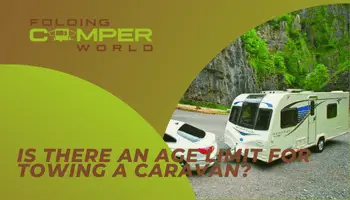If you’re towing a caravan for the first time, you might be thinking about the government towing rules for caravans. This may be questions about the towing age limit, if you need a specific licence or laws about towing a caravan. These can be pretty difficult to find answers for since the rules on this are constantly changing. The most recent change to towing laws changed on 16 December 2021. One of the most significant changes introduced is that if you passed your car driving test from 1 January 1997, you’re now allowed to tow trailers with a MAM (maximum authorised mass) of up to 3,500kg.
When it comes to age restrictions, there is no minimum age requirement for towing a caravan. You can legally tow a caravan as long as you have a driving licence. However, once you reach the age of 70, your driving licence expires, and you need to renew it every three years to continue driving. The same rule applies to towing a caravan. In this blog post, I will cover more information about the age limit for towing a caravan and other caravan towing laws.
This blog post will discuss the following:
New towing rules
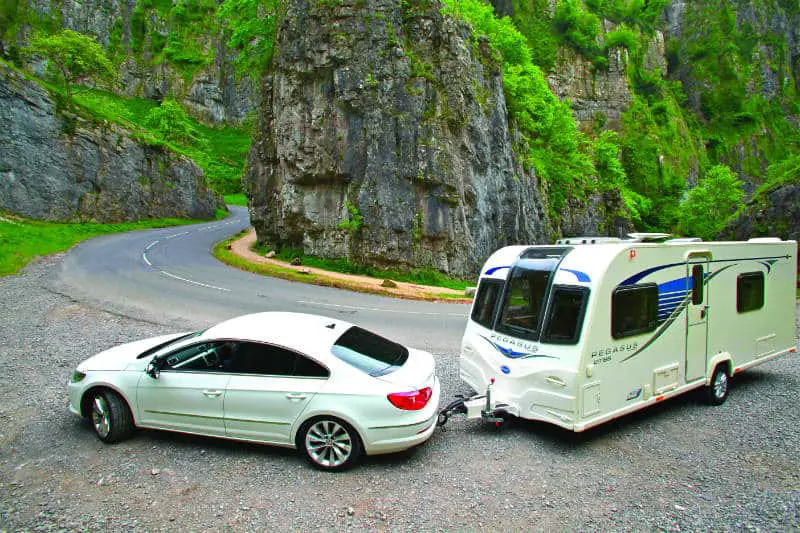
As explained above, the most recent change to towing laws changed on 16 December 2021. Depending on when you got your driving licence, you may not be affected by these changes and can continue towing your caravan as you have been. The section below gives more details about what you could tow before 16 December 2021. This information is all up to date and accurate during writing as all the information has been gathered from Gov.UK.
If your licence was issued before 1 January 1997, you are not affected by the new changes.
- You can still drive a vehicle and trailer combination up to 8,250kg maximum authorised mass (MAM).
- You’re also allowed to drive a minibus with a trailer over 750kg MAM.
MAM is the limit on how much the vehicle can weigh after being fully loaded.
Before recent changes, if your licence was issued from 1 January 1997 to 18 January 2013, you could tow the following:
- a car/van up to 3,500kg MAM towing a trailer of up to 750kg MAM (up to 4,250kg in total)
- a trailer over 750kg MAM, as long as it is no more than the unladen weight of the towing vehicle (up to 3,500kg in total)
If you wanted to tow anything heavier than this, you would have been required to pass a car and trailer driving test.
Before recent changes, if your licence was issued from 19 January 2013, you could tow the following:
- a car or van up to 3,500kg MAM towing a trailer of up to 750kg MAM (up to 4,250kg in total)
- a trailer over 750kg MAM as long as the combined MAM of the trailer and towing vehicle is no more than 3,500kg
If you wanted to tow anything heavier than this, you would have been required to pass a car and trailer driving test.
The new changes from 16 December 2021 have slightly altered the information above.
If you passed your car driving test from 1 January 1997, you’re now allowed to tow trailers up to 3,500kg MAM. You should check your car’s handbook to determine its gross train weight before towing a caravan. This is the total allowable weight of the car plus the trailer plus the load.
Please note that you don’t need to contact DVLA for this to happen. It will be done automatically as DVLA will update your driving licence record to show that you’re allowed to tow trailers.
As explained previously, if you passed your car driving test before 1 January 1997, you are not affected by the change.
Towing age limit
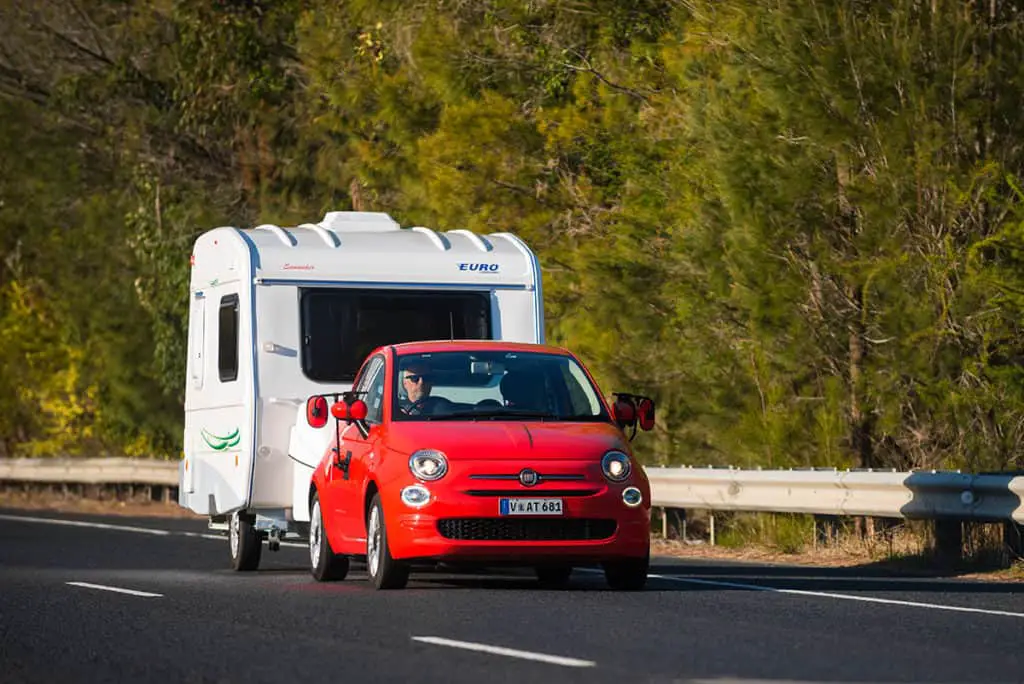
The new rules that have been put in place depends on when you got your driving licence, and therefore, it may even depend on your age. This is why some people may be unsure if there is an age limit on towing a caravan.
There is no minimum age limit for towing a caravan. As long as you have a valid driving licence, you can tow a caravan. However, you do have to ensure that the weight you’re towing falls within the limit of what is legal. This can be checked from the previous section of this blog post.
On the other hand, after reaching 70 years of age, your driving licence expires, and you will have to renew it every three years to continue driving. It is recommended that 70+-year-olds who want to tow a caravan get a category B+E licence as this allows them to tow a caravan. However, it must be a caravan that can be safely towed by a 3,500kg towing vehicle. If your driving licence expires and you are driving a vehicle with a MAM of over 3,500kg at 70 years of age, you will need to pass the D4 medical test and the required standard eyesight test to be legally allowed to tow a caravan.
Caravan towing laws
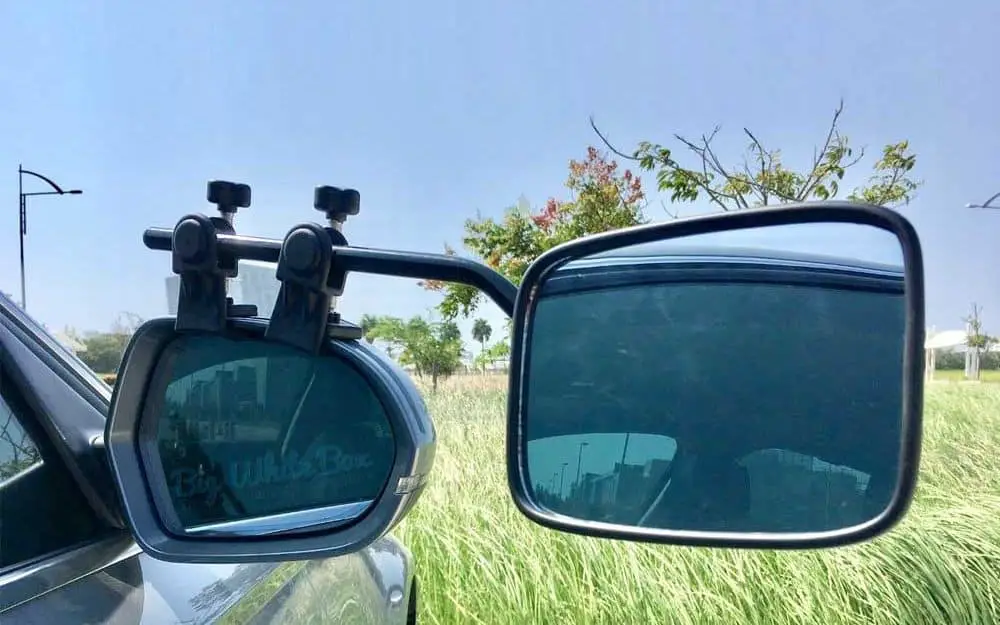
Once you know the towing weight limits based on when you got your license and based on your age, there are a few other laws that you should be aware of before you begin towing your caravan. These laws are about your towing mirrors, tow bars, and driving speed. The table below explains some key things that need to be considered to follow these laws.
| Tow mirrors | Tow bars | Driving speed |
|---|---|---|
| These need to be attached to your car’s wing mirrors as they allow you to see past your caravan. Towing without these mirrors can lead to a £1,000 fine and three points on your driving licence. | Since tow bars have their own weight limits, it’s essential to check the manufactures instructions to ensure that it doesn’t exceed the limit of your towing car. | On single carriageways, your maximum speed should be 50mph, whereas, on a dual carriageway or a motorway, the maximum speed should be 60mph. Please note that it is illegal to tow a caravan in the outside lanes of a motorway. |
Extra tips for towing a caravan
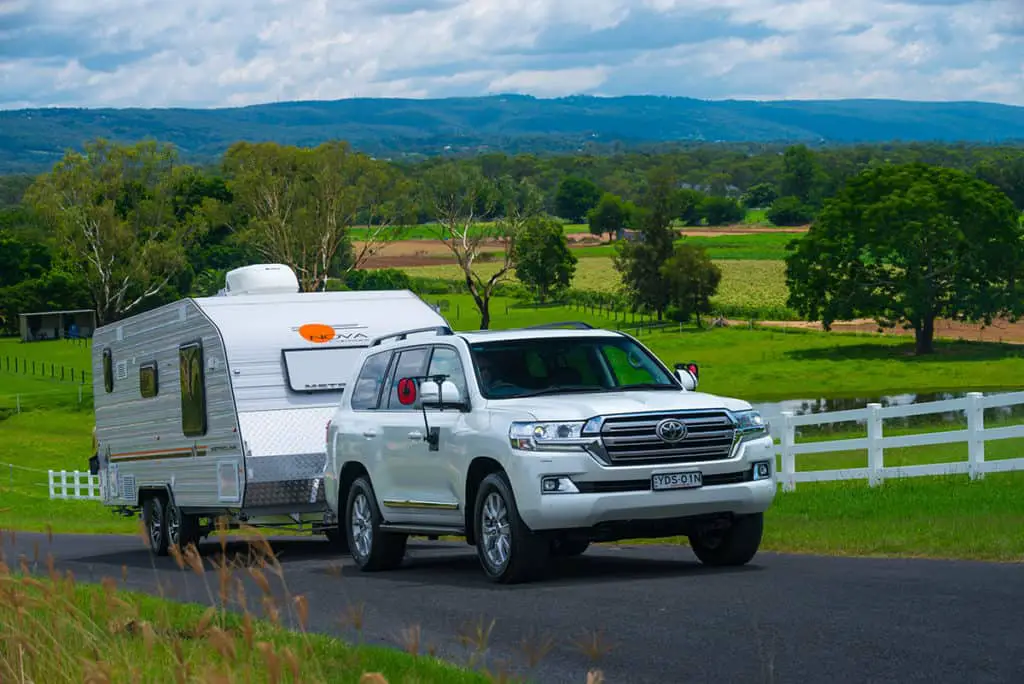
Here are some other valuable tips for towing a caravan that will ensure you stay safe while on the road:
- Before heading off, do all the necessary checks on your caravan, such as the tyres, weight limits, lights and oil.
- Ensure that you allow extra time for braking and accelerating.
- Remember that towing a caravan affects how your car brakes, accelerates and goes around corners.
- Take into consideration the size of your caravan to be mindful of others on the road.
- Since caravans are pretty large, they can prevent other car drivers from seeing the road ahead. Therefore, if a queue of traffic builds up behind you, it may be best to pull over in a safe place and let the traffic pass.


